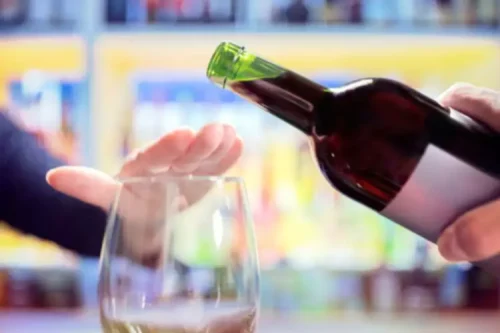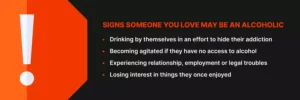
That’s why individuals who have struggled dry drunk syndrome with addiction over a long-term period of time may continue to struggle with “dry drunk” behaviors even as they enter recovery. This condition is known as “dry drunk syndrome,” or what researchers call post-acute withdrawal syndrome (PAWS). In fact, an estimated 75 percent of individuals in recovery from alcohol addiction may experience the condition at some point, according to the UCLA Semel Institute for Neuroscience and Human Behavior.
When Does Alcohol PAWS Peak?
You may still be dealing with the stages of denial, anger, bargaining, and depression before finally Sobriety reaching the point of accepting the absence of alcohol in your life. Sobriety is a long, ongoing process, but help, support, and treatment can make it easier. Possible causes of lethargy and loss of appetite include infection or illness (bacterial or viral infections, parasites, or respiratory issues).

Gateway Foundation Hosts its Annual Connecting for Recovery Luncheon
With this self-knowledge, alcoholics can start to repair the damage their addiction caused to themselves and those in their life. Lastly, addressing dry drunk syndrome requires a combination of physical, emotional, and behavioral therapies to address the causes of addiction and cultivate healthy habits and coping mechanisms. Comprehensive addiction recovery programs may include individual therapy, therapy, medication-assisted treatment, and 12-step programs.

Is The Term “Dry Drunk” Offensive?

To effectively address dry drunk syndrome, you can benefit from an outpatient program at one of our recovery centers in Sarasota, Venice, or Port Charlotte. Our outpatient programs offer flexibility, allowing you to maintain work or family commitments while receiving treatment. These programs can be personalized and typically include a combination of all the above mentioned points. Participating in support groups, such as Alcoholics Anonymous or other recovery programs, can provide you with a sense of community and understanding. Sharing your experiences with others in group therapy who have faced similar challenges can foster connection and reduce feelings of isolation. Find support groups near you and commit to attending them for long term recovery.
Skill-building Workshops and Programs
In cases where dry drunk syndrome intertwines with other mental health disorders, a comprehensive psychiatric evaluation can pinpoint the challenges. Medications might be prescribed to manage symptoms of depression, anxiety, or other conditions, complementing other treatment modalities. While dry drunk symptoms may resemble those of withdrawal and active addiction, they can typically last well into early recovery and sometimes beyond. If your loved one is struggling with dry drunk behaviors, you will want to ensure that their treatment provider is properly equipped to provide the appropriate treatment and care for these challenges. Loved ones often hope that addiction treatment can change this behavior — and, with time and commitment, professional treatment can lead to behavior change.

- However, for a newly sober person, managing stress can feel overwhelming.
- Many of our patients mistakenly believed that quitting drinking is the end of their problems.
Alcohol treatment centers provide structured environments to address both the physiological and psychological aspects of recovery. A multitude of programs and treatments exist, tailored to individual needs, ensuring that every person can find an approach that resonates best with their unique situation. Consult with a healthcare professional about a personalized treatment plan. Rather than just focusing on abstaining from alcohol, an exhaustive rehabilitation process should be in place. This approach not only addresses the physical dependency on alcohol but also delves deep into the psychological and emotional aspects of addiction. It describes someone who, although not drinking anymore, continues to exhibit the same behaviors and problems they faced during their drinking days.
What Are the Symptoms of Dry Drunk Syndrome?
- By addressing these underlying causes, you can significantly reduce the likelihood of experiencing dry drunk syndrome.
- When one understands the nature of alcohol addiction and how it affects the individual’s mind, it is easy to understand why these syndromes develop.
- These types of people think that once they stop using or drinking, their life will become restored and all their relationships will improve as a result.
- When an individual stops consuming alcohol, the brain and body go through an adjustment period known as withdrawal.
With proper support and care, you can help your loved one navigate the complexities of dry drunk syndrome and emerge into a strong and healthy recovery that will last. For many people in recovery, dry drunk symptoms can make cravings and a desire to drink again very difficult to resist. It’s important to work with your loved one’s treatment provider to watch for the warning signs of relapse. It is worth noting that dry drunk syndrome is less common for those who attend a treatment program with a support system, such as inpatient, outpatient, or a 12-step program. This is likely because the individual has a need to explore the reasons they began drinking in the first place. Some people use dry drunk syndrome1 to refer to post-acute withdrawal syndrome or PAWS2.
Dry Drunk Symptoms and Behavior Patterns
Whether it’s attending a certain number of support meetings each month or engaging in a new hobby, having goals can provide direction and purpose in your recovery journey. Coping with cravings for alcohol may involve identifying triggers, developing alternative coping strategies, and seeking support from peers or professionals. If you have not developed healthy coping strategies to deal with stress and emotions, you may revert to old habits or develop new unhealthy ones. People who exhibit symptoms of this illness are sometimes mistakenly believed to be about to relapse and start drinking again. When impulsivity is combined with grandiosity, attention-seeking behavior accelerates to warp speed.
- Our team of experienced professionals offers comprehensive addiction treatment programs that address not just the addiction but also the underlying emotional and psychological issues that contribute to it.
- Dry drunk syndrome symptoms can be the exact opposite of these recovery guidelines, which could signify impending relapse.
- One of the most destructive mental aspects of addiction is negative judgment.
- To effectively address dry drunk syndrome, you can benefit from an outpatient program at one of our recovery centers in Sarasota, Venice, or Port Charlotte.
- If you find that your symptoms persist or worsen, seeking professional assistance from therapists who specialize in addiction can be beneficial.
- But the “normal” life they had once led is probably still filled with those stressors that had triggered their addiction in the first place.
They may become defensive and justify themselves quickly, and they may appear disengaged or like they lack motivation. Alcoholics might exhibit a wide range of bizarre attitudes and behaviors. Since they are accustomed to the conduct, loved ones might not notice the symptoms.